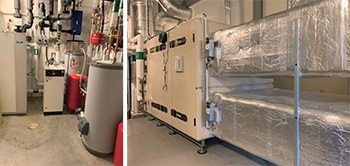- IR TOP
- IR・Sustainability
- (E) Environmental Initiatives
- Climate Change Response
(E) Environmental Initiatives
PRINTBasic Approach
PILOT and the PILOT Group recognize the importance of working to help resolve environmental issues from a global perspective through our business activities.
We will help to bring about a sustainable society while reducing the environmental impact of all aspects of our business operations.
Climate Change Response
Response to climate change
Climate change—a vital issue requiring an urgent global response—affects the PILOT Group’s business. We might need to change the way we do business in various ways as increasingly intense natural disasters become greater risks to buildings and plants, supply chains are at more risk of being disrupted, policies and regulations are tightened, and investors and other stakeholders want disclosure of information related to climate change. The Group has identified “response to climate change” as one of our crucial sustainability issues. We will use energy more efficiently and reduce greenhouse gas emissions, while we will work on many types of climate change countermeasures.
Pilot Corporation of Europe, one of the Group's overseas production bases, calculates the amount of CO2 emissions generated from production and is working on carbon offsets. In addition, our Group companies in Europe (the UK, Nordic countries, Germany, and France) calculate CO2 emissions associated with business operations and are also working on carbon offsets.
In March 2023, the we announced support for the recommendations of the Task Force on Climate-Related Financial Disclosures (TCFD). Going forward, we will continue to improve our information disclosure and work with all stakeholders to help bring about a decarbonized society.
Initiatives to reduce energy use
Every business site within the PILOT Group is working to use energy more efficiently and to reduce consumption. Offices and plants are adopting LED lighting, and we are using energy-saving equipment in manufacturing.
At the Hiratsuka Plant, the power source for deodorizing and smoke removal equipment have switched from natural gas to electricity, reducing CO2 emissions from this equipment by approximately 80%. We also plan to replace forklifts in this plant, with an expected reduction in fuel consumption of about 30%.
Pilot Nordic (Sweden) has introduced a heating system that uses geothermal heat to reduce energy consumption.

Tracking energy use and greenhouse gas emissions
In fiscal 2023, PILOT Corporation tracked energy use and greenhouse gas emissions for the year, and we have organized and aggregated the data from domestic operations.
Energy use and greenhouse gas emissions over the past 4 years
| 2020 | 2021 | 2022 | 2023 | ||
|---|---|---|---|---|---|
| Energy use | |||||
| Natural gas (thousand m3) | 202 | 164 | 84 | 37 | |
| LP gas (tonnes) | 216 | 231 | 244 | 250 | |
| Gasoline (thousand kl) | 0 | 0 | 0 | 0 | |
| Kerosene (thousand kl) | 0 | 0 | 0 | 0 | |
| Diesel (thousand kl) | 0 | 0 | 0 | 0 | |
| Electricity (MWh) | 27,115 | 29,520 | 28,982 | 28,844 | |
| Greenhouse gas emissions (t-CO2) | |||||
| Total emissions (Scopes 1 and 2) | 13,467 | 14,524 | 14,488 | 12,515 | |
| Scope 1 | 1,515 | 1,467 | 1,269 | 1,074 | |
| Scope 2 | 11,952 | 13,057 | 13,218 | 11,440 | |
- * Data coverage: PILOT Corporation’s domestic plants and offices
-
*
Scope 1: Direct greenhouse gas emissions from fuel used in the Company
Scope 2: Indirect greenhouse gas emissions from the use of electricity and heat purchased by the Company -
*
Numbers are rounded down, so totals might not match the sum of the figures.
A value of 0 would indicate a fractional amount of energy use.
We will continue to collect and manage these data and take steps to combat climate change by efficiently using energy and reducing greenhouse gas emissions in order to realize a decarbonized society.
Related webpages
- (E) Environmental Initiatives
- (S) Social Initiatives
- (G) Corporate Governance
